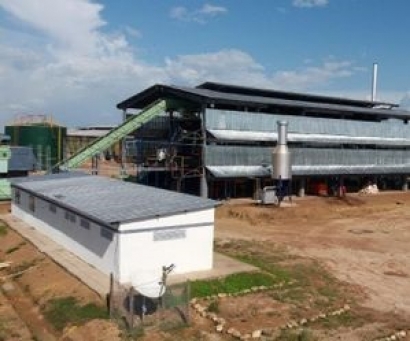
C2Biotrade is seeking to establish plant oil plantations on unfertile and low alternative land to capture carbon from the atmosphere and produce feedstock for the production of climate friendly biofuels with a greenhouse gas reduction of 134 percent vs. fossil fuels.
The letter of intent covers, among other items, a framework for how to establish an off-take agreement that would enable an increase of biofuels supply to the Nordics in an environmentally, socially and economically sustainable way.
The goal of C2Biotrade is to plant 60,000 hectares of African palm which can yield up to 250,000 metric tons a year of palm oil. The newly planted palm trees would capture more atmospheric CO2 than the current grass, which explains the 134% reduction.
“St1 is constantly working on replacing fossil fuels with renewable fuels, liter by liter. C2Biotrade’s efforts in the sustainable production of biofuels through the afforestation of low alternative land fits well with our ambition to increase the supply of sustainable biofuels,” said St1’s Director of Renewable Energy, Thomas Hansen.
“We take the expressed interest of St1 to cooperate with us to provide climate friendly renewable diesel as a vote of confidence both in us and our connected Colombian producers, and we look forward to developing this business together,” added CEO of C2Biotrade, Henrik Wiig.
The global demand for climate friendly biofuels is experiencing a marked growth. The Norwegian biofuels mandate which in 2018 is at 10 percent, will double in 2020. To reach the targets set for emission cuts in the transport sector, increased production of – and access to – sustainable feedstock is required. To reap the full potential of renewable biofuels would require a regulatory framework that incentivizes the reduction of CO2.

